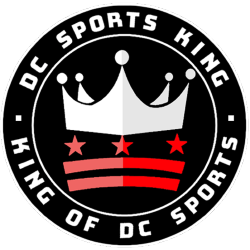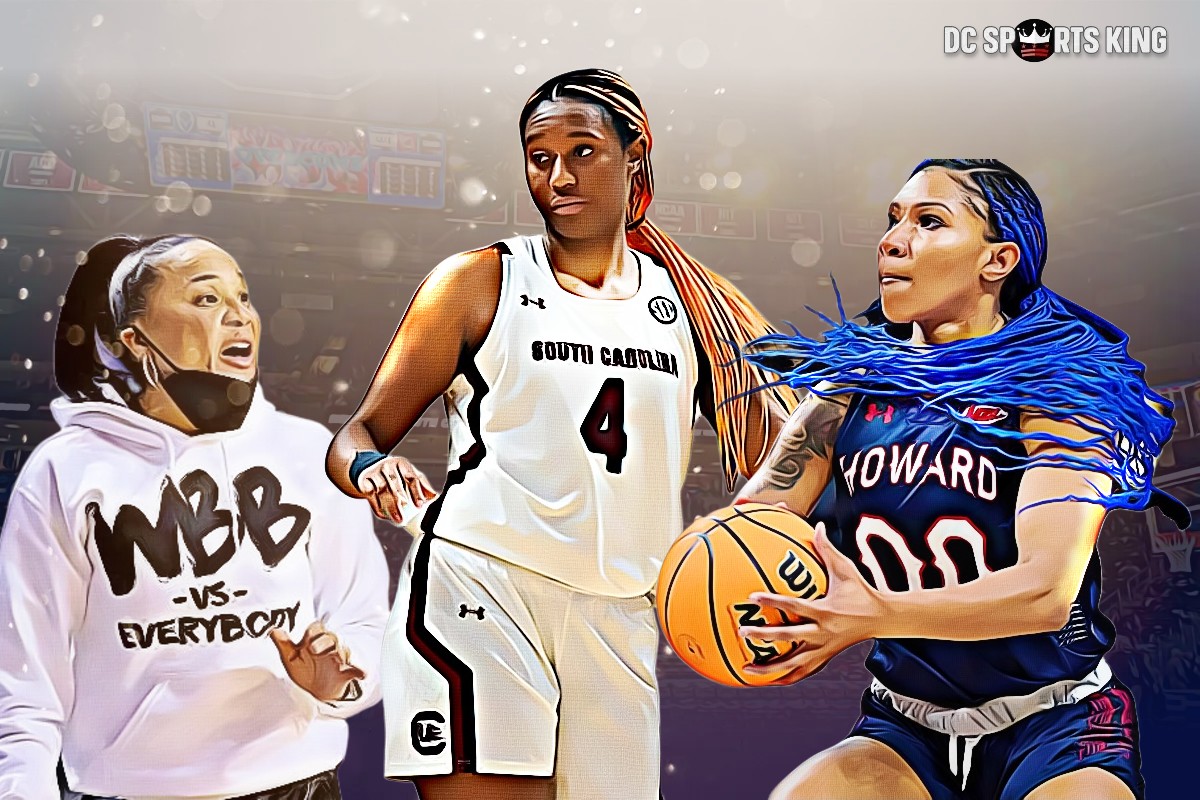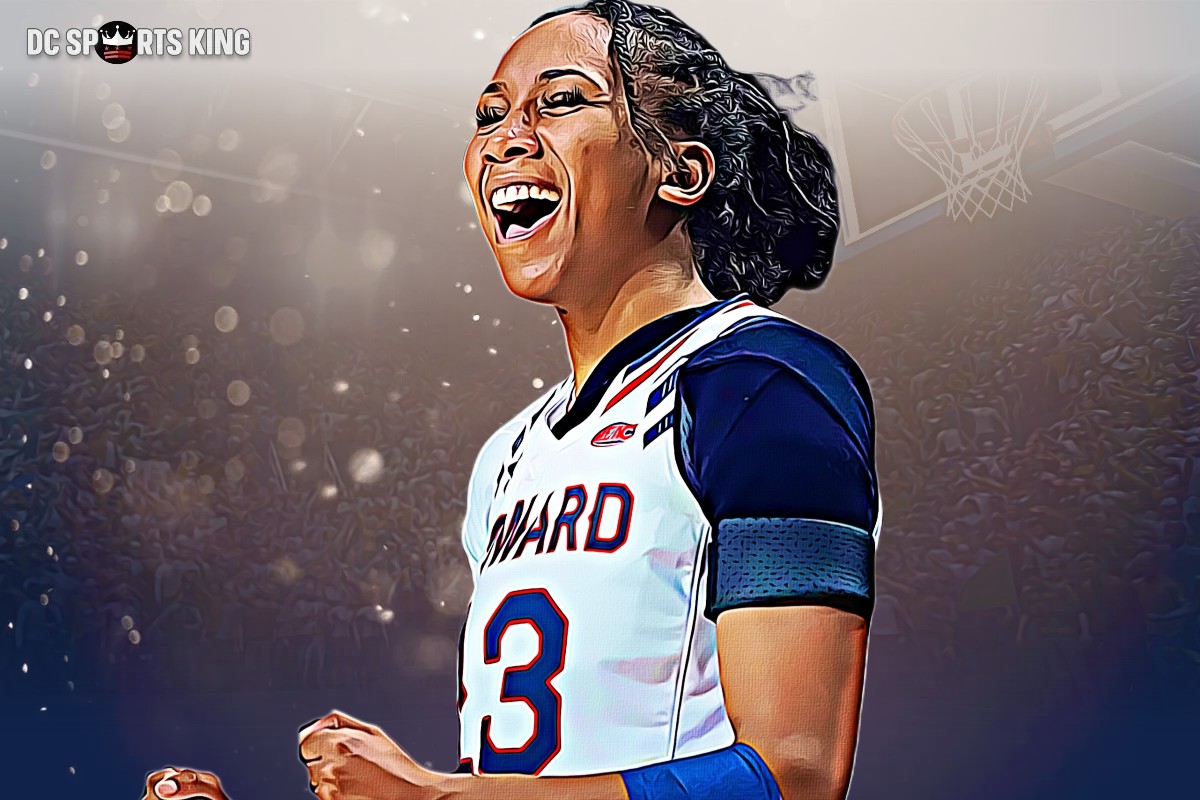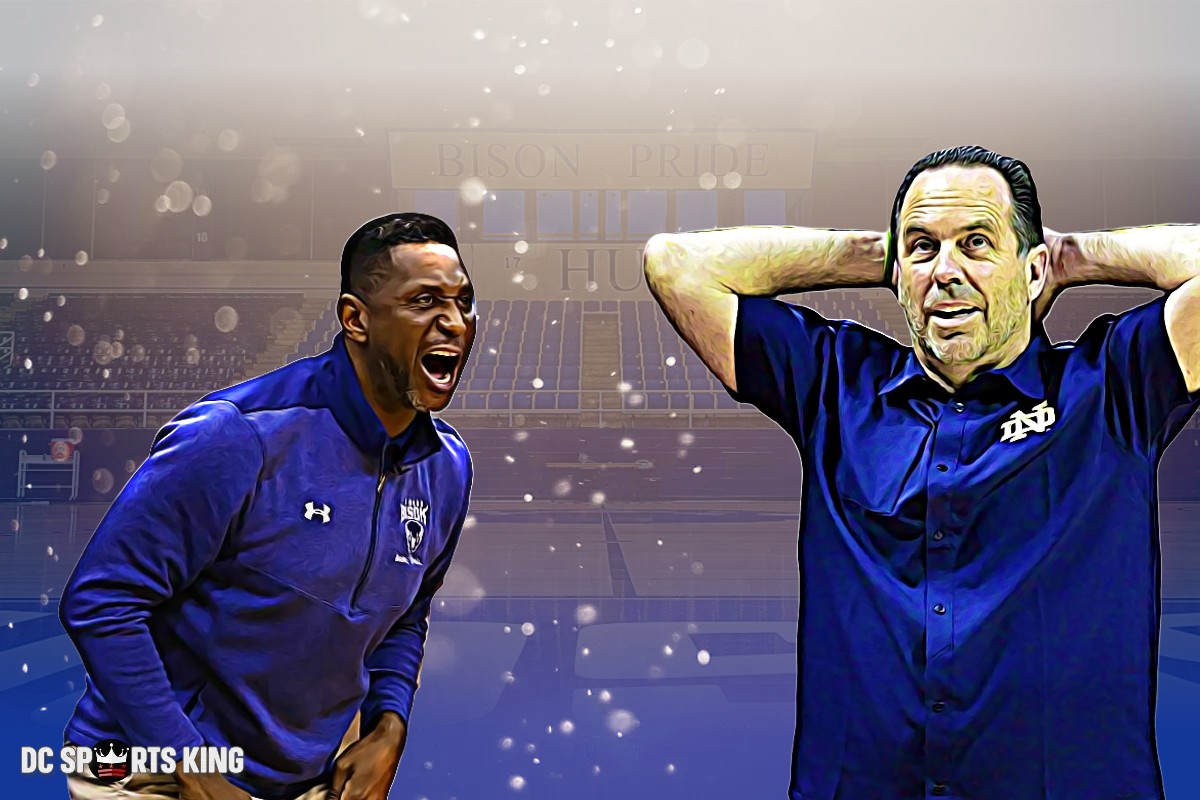Howard University men’s basketball coach Kenny Blakeney has proposed an innovative and ambitious plan to secure a $100 million investment for the Bison basketball program. Recently, Blakeney detailed his proposal to Jesse Dougherty of The Washington Post.
This plan involves leveraging private equity to elevate the program’s status and ensure its long-term success. Blakeney’s proposal is inspired by the success of Deion Sanders at Jackson State, where businesses recognized the value of partnering with Historically Black Colleges and Universities (HBCUs).
How Kenny Blakeney’s plan works
Blakeney’s strategy involves selling a 33 1/3 percent stake in the men’s basketball program to private equity firms and wealthy individuals. The revenue generated from a sale would be split between the potential owner, the university, and the basketball program. This influx of capital would upgrade Howard’s facilities, establish Name, Image, Likeness (NIL) deals with players, and make the Bison an attractive option for other conferences.
Howard is a member of the Mid-Eastern Athletic Conference, home to a set of HBCUs. The shifting landscape of conference realignment puts mid-major and low-tier conferences in danger of being pushed further back. Being a more recognizable program gets eyes and resources on the program that usually aren’t there for schools alike. And possibly, if they outgrow their current home, the Bison could be enticing to a conference with higher TV rights revenue.
In 2022, Howard signed a 20-year deal with The Jordan Brand. The pact hopes to give the Bison’s athletics as a whole more recognition. But a shoe deal isn’t enough. Programs like Howard’s men’s basketball need to channel other avenues of funding. Blakeney’s proposal goes deeper into gaining greater resources.
The benefits of private equity ownership for Howard
One of the primary benefits of private equity ownership is the increased financial resources it brings. With significant capital, the Howard basketball program can invest more in recruiting top talent. The Bison can offer competitive salaries, signing bonuses, and other incentives to attract high-caliber players. Additionally, the program can upgrade its facilities and training programs, making them more attractive to potential recruits. State-of-the-art facilities and advanced training programs can be a significant draw for players looking to develop their skills.
Private equity firms also bring strategic management expertise toward player recruitment. They can involve data-driven approaches to identify and target the best talent and build strong scouting networks. Furthermore, private equity investors can help teams build networks that reach both local and international markets, expanding the pool of potential recruits and increasing visibility on a global scale for the program.
Another advantage of private equity ownership is the focus on long-term development. Private equity firms often invest in the long-term success of the teams they support. That strategy can lead to a focus on developing young talent and building a sustainable pipeline of players for the future. By prioritizing long-term development, the basketball program can ensure a steady flow of talented players and maintain its competitive edge.
The potential downside of a private equity ownership
However, there are potential downsides to private equity ownership. The pressure to deliver high returns could lead to a focus on short-term gains over long-term development. In turn, this could result in decisions to prioritize immediate success at the expense of the program’s future. Additionally, non-revenue sports might get deprioritized. Private equity firms may focus their resources on the most profitable aspects of the program.
Despite these potential challenges, Blakeney’s proposal represents a bold and forward-thinking approach to securing the future of Howard’s basketball program. By leveraging private equity, he aims to ensure that Howard remains competitive and does not fall into a secondary tier of NCAA tournaments. This plan could significantly reshape Howard’s men’s basketball future and set a precedent for other HBCUs.














